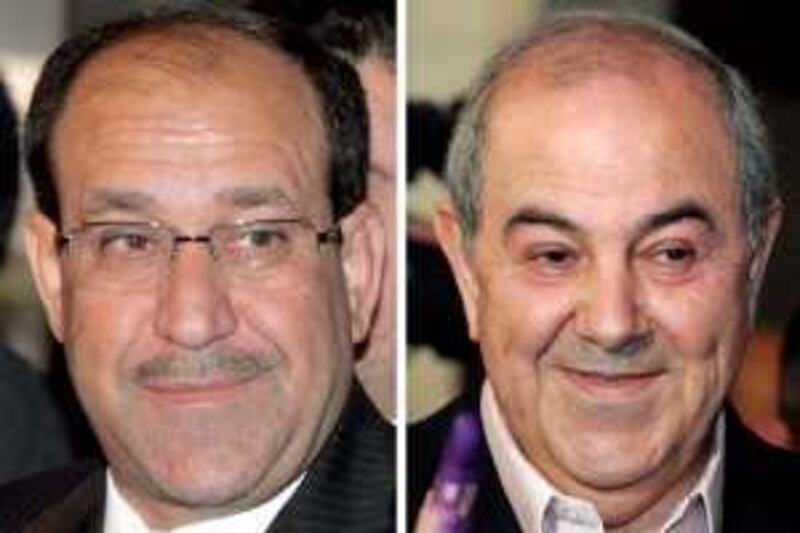With reference to Tony Karon's opinion article Flawed system will breed continuous instability in Iraq (March 21): as Iraq's election results unfold, it has become clear that the victorious political alliance, either Ayad Allawi's Iraqi National Movement or Nouri al Maliki's State of Law, will only have a marginal lead and fall short of an outright majority. But, contrary to Tony Karon's commentary, this does not mean that Iraq's democratic process is a failure.
Such a level of competition must be read as a success. Iraq's use of proportional representation ensures that each ethnic and political group is fairly represented in the parliament. Furthermore, the coalition-building process is creating space for political debates that have to overcome sectarian rifts to determine the country's future. Democracy is a long-term process and Iraq's is fledgling but undeniably working, making room for healthy debates needed for a stable country. Pauline Lejeune, US
In reference to the article <>Give us cheaper telecoms says FNC (March 24), I really appreciate the call by Federal National Council members to reduce the telephone charges in the UAE. It's not only that these charges are very high compared to poorer countries but also the quality is very low indeed. In particular, broadband access quality in the UAE remains very poor but the price is very high. The same goes with the SMS services. For example, take the case of Sri Lanka where one can send an international SMS for Rs2 that is equivalent of 6.66 fils whereas if we want to send an SMS to Sri Lanka it cost 60 fils. Shabir Zinudeen, Abu Dhabi
Just a few observations from a UAE telecoms consumer: very high rentals and rates; poor customer service; inadequate training given to 101 call centre staff; slow internet speeds and very high prices as compared to, say, India. Massive profits lead to complacency, poor customer service, and every incentive to maintain the status quo. Adil Ali, Abu Dhabi
Khalifa City A is not a viable alternative to living on the island of Abu Dhabi. I have lived here for two years and the city has deteriorated. It seems to have become the unofficial labour camp of Abu Dhabi. As more affordable housing comes onto the market, companies are using villas as hostels and labour camps. Why are labour camps being built if companies can rent out villas and house their labourers there? I don't feel safe living in the same neighbourhood. There are no pavements and no street lighting in many areas. Rubbish cans overflow in the streets constantly and nobody seems to mind. It's about time the Municipality cleaned up Khalifa City A. Enforce some housing laws and clean up the streets! It's not a nice place to live and not a true reflection of Abu Dhabi. M Raymer, Abu Dhabi
It is important to recognise exemplary service. Amid all the negative press on the student visa issues experienced by applicants from South Asian countries intending to study in universities in the UK, I was recently faced with an almost hopeless situation regarding my son's visa extension, precipitated due to a flawed decision by the Home Office. However, the head of the Entry Clearance Section at the British Embassy in Abu Dhabi was very supportive in facilitating a resolution of the situation in a timely manner and for which I would like to express my gratitude. Such diplomats are, indeed, a credit to the British Foreign Service. Mohammed Hamza, Dubai
In her article Too many legs for me (March 24), Sophia Money-Coutts described her unpleasant encounter with a cockroach in her apartment. I so agree with her. Having grown up in the US in an area that didn't have these monstrosities, I was shocked when I first came to the Middle East. I was traumatised for the first years I lived here. The only thing that solved it was moving out of the city. Now I find them rarely and so my mental state has improved tremendously. Alice Langue, Saudi Arabia
I refer to Hard landing for cargo firms hit by ban on ageing planes (March 19). Transporting goods into difficult areas is a dangerous, but necessary, business. If these firms are not allowed to continue their operations, more than displacement of their families will occur. Aircraft age is not the problem. The real problem is maintenance. John M White, US






